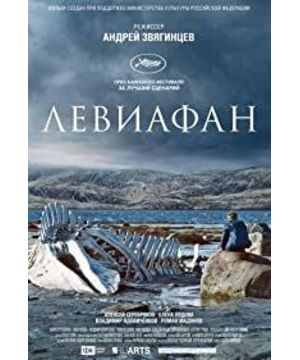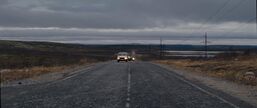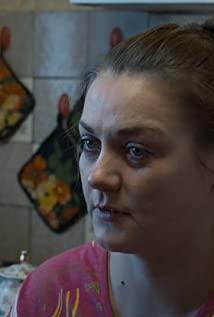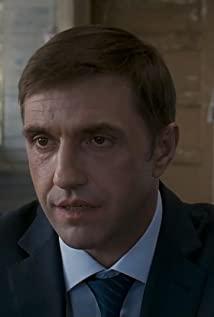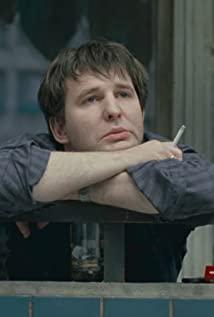The "Leviathan" written by British political scientist Hobbes is the embodiment of a powerful authoritarian state. Avoids a "war of all against all" and also allows people the right to freedom of thought. It is not difficult to imagine that this idealized "giant beast" born in the study can hardly find a perfect counterpart in real life, and how to lock the "Leviathan" in a cage has become a must for modern countries. problem to be solved. Obviously, in the first half of the Russian movie "Leviathan", this "giant beast" that ran out of the cage has been hovering faintly over the head of the protagonist Kolya's family.
The male protagonist, Coria, is an industrious and simple car mechanic. He lives in a small town on the coast of the Barents Sea with his beautiful and quiet wife Leah and their son Rome by his ex-wife. Their family's small building is located beside a small river, but it has already been favored by the mayor of the small city. After the expropriation, it will be developed in the name of building public facilities.
Unwilling to lose his homeland, Korya took up the legal weapon, but Dmitry, a handsome lawyer who came from Moscow (Koriya's old comrade in arms), told him that "the current policy" is not in their favor. In the end, the lawsuit was lost, and the drunk mayor Vadim came to the door to provoke him, yelling at their family: "You ants, do you have to be ugly?"
In complaining about Vadim's arrogant behavior After failing and leading to Koria's imprisonment, Dmitri, who was constantly running into a wall in the small town's judicial system, decided to use the "evidence" of Vadim's evildoing in his possession and the "background" of Moscow to coerce Vadim to let him go. Coria and demanded 3.5 million rubles for "compensation".
So far, the film has revolved around the battle between ordinary little people and "Leviathan's tentacles" in a rigorous and orderly manner. Before Kolya went to complain to the mayor, the film also used the crossword puzzle played by the policeman Stepanitz to point out the word "evolution", implying that the survival struggle of "the jungle of the weak" is about to start.
But when Coria was released for the first time, the core conflict of the whole play suddenly "turned from the outside to the inside" - the affair between Dmitri and Coria's wife Leah, in a comedic collective It was exposed in the long trip, which made this repressed "social criticism drama" jump into a "family ethics drama".
When the plot of the group excursion was just unfolded, the first words that came to my mind were the words "Tiaohu Lishan": When the Koriya family returned from the tour, was their home already a ruin?
但倾杞的并非是家园,而是科里亚的友情、爱情和亲情:被揍了一顿的德米特里,不久后就逃回了莫斯科;利亚虽然得到了科里亚的原谅, But he could not get the forgiveness of his stepson Roman, who had seen it all. Heartbroken, Leah came to the shore of the Barents Sea. On the dark sea before the dawn, she saw the surging and ups and downs of the giant sea beast - the whale (that is, the prototype of Leviathan).
After this, Leah disappeared and Coria became an alcoholic.
Soon, the police found Leah's body, Coria was identified as the murderer and received fifteen years in prison, while the small riverside building that had not been evacuated was pushed to the ground...
There are comments Point out that the process of falling apart the Coria family turned the second half of the film into a "failed" book of Job. Job in the "Bible Book of Job" was a righteous man who was "perfect and upright, fearing God, and shunning evil", but under Satan's tricks, he was deprived of everything except his life. And Kolya, like Job, thought he was innocent and didn't understand why he suffered so much.
Before his arrest, Coria met Father Vasily in a grocery store, and he asked him if he would "light a candle" and go to church every week from now on, would everything be different? And Father Vasily just told Coria the story of Job and asked him, "Can you hook the Leviathan?"
We know that the "righteous" Job who suffered incomprehensible pain , never questioned God, and received God's double blessing at the end. So, is director Sarkinsev trying to tell us that, as an "unrighteous" ordinary person, Coria's misfortune is not only due to the authority of "Leviathan", but also to his own moral failure What about it?
Indeed, some people think that the story line of the family's falling apart has weakened the film's realistic criticality to some extent. In a country with a strong Orthodox tradition, even if Leviathan exposes certain social problems (in fact, the prototype of the film's story comes from the United States), the "religious narrative" in the second half is very likely to be funded by the Russian Ministry of Culture. The film, and one of the important reasons for recommending it to the Oscars.
Is this the director's "cunning"?
But Sarkinsev seems to have left too many "footprints" on the issue of Leah's real cause of death - did Coria accidentally kill his wife in anger? Or did Vadim send someone to assassinate Leah and put the blame on Koriya? The film does not provide any clear direction, and we can even consider Leah's death to be a complete accident. But it is precisely this ambiguity and ambiguity that makes the viewer enter a broader thinking space.
Leviathan is not only an "authoritarian" derived from modern political science, but also a "monster of destiny" hidden in the origin of human memory. In the Book of Job, when God talks to Job, he mentions Leviathan and Behemoth, another land beast. Some people think that Behemoth's body is strong and represents the physical nature of human beings, while the hard shell of Leviathan represents the hardness, pride, stagnation of human nature, and the seemingly strong but actually weak nature. When Leah saw the ups and downs of the whale (Leviathan) on the Barents Sea, the director may also hinted to us that, in addition to the "authoritarian" strife, a "Leviathan-style" demon, but also tormenting us.
What is this "heart demon"? Is it a resistance to an unfair fate? The idea of an irresistible Leviathan? Or the latent desire to use it to conquer the world (and ultimately kill it)? Regardless of whether Sarkinsev can become the "Tarkovsky of the New Era", and regardless of the controversy over the narrative choice of the film "Leviathan", this "sea monster" with dual connotations , obviously won't be so easily swept away from the human mind.
And beyond the film itself, perhaps as Zizek said in an interview, the only positive aspect of Job's (and Coria's) complaints is that neither of them can accept that the pain they're going through makes sense. view, and "as long as you don't see pain as something meaningful, that means we can change it and fight it".
View more about Leviathan reviews


